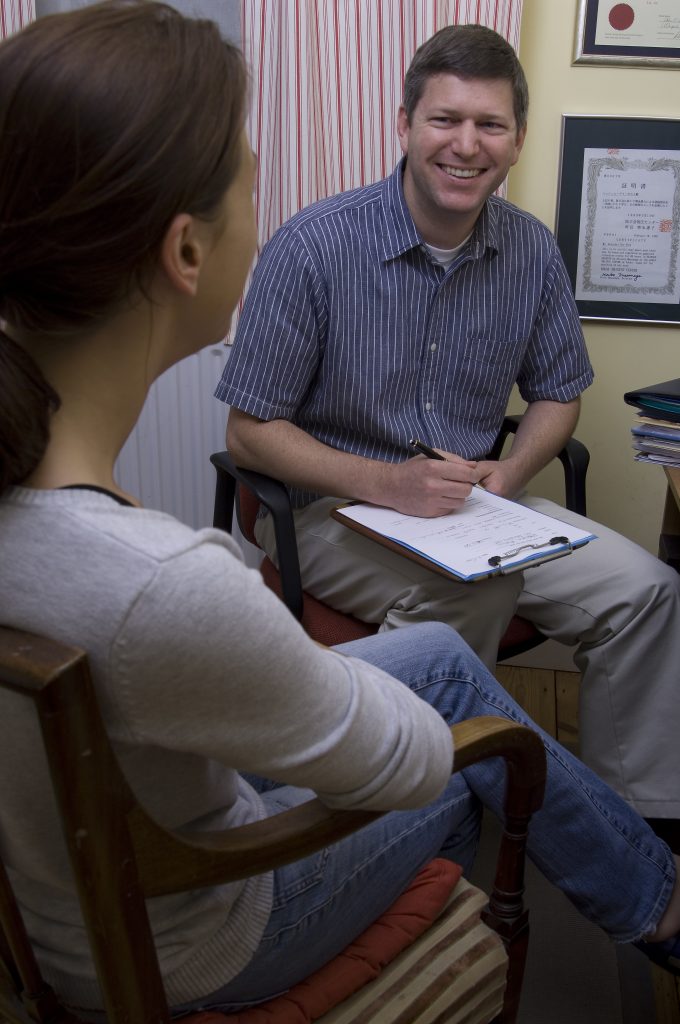Subscribe to the Newsletter
If you are interested in understanding how Traditional Chinese Medicine can improve your life sign up to my newsletter for the latest updates.

So! You’re planning to visit an acupuncturist? First, do some Self-Help!
Think about your problem and try to marshal your thoughts about it. A little forethought goes a long way.
The following might help jog your thoughts – but they don’t cover everything …
What sort of pain (problem) is it?
People consult acupuncturists for all sorts of problems, and many don’t involve pain – Insomnia, for instance.
But suppose it is a pain, then …
Clear answers to these questions could make an enormous difference to the diagnosis your acupuncturist reaches. And you may find that the answers even help you “self-help” the pain away.
What were the circumstances surrounding the original onset? For example, what was going on in your life in the months preceding the onset of your problem or at about the same time as it started?
Is there any other kind of discomfort that you have?
Reading List
Helping Ourselves – A Guide to Chinese Food Energetics by Daverick Leggett
The Web That Has No Weaver – Understanding Chinese Medicine by Ted Kaptchuk
Dragon Rises, Red Bird Flies: Psychology, Energy and Chinese Medicine by Leo Hammer
The 5 Laws for Healthy Living by Angela Hicks
Acupuncture in Practice: Case History Insights From the West edited by Hugh MacPherson and Ted Kaptchuk
Further Study and Educational courses
![]()
If you wish to consider training as an acupuncturist or herbalist, the nearest (to Scotland) good centre is in York: the Northern College of Acupuncture, 61 Micklegate, York YO1 6LJ.
Tel. 01904-343305.
Website http://www.chinese-medicine.co.uk.

The other question is what kind of acupuncturist to consult. Think in the same way you would if consulting any professional, such as a lawyer, architect or private doctor.
You would probably prefer someone well-qualified, with experience and preferably with a good track record. If you know a bit about it, there are specialists in different forms of Chinese medicine, such as TCM theory or Five Element acupuncture. Both use acupuncture points on acupuncture channels.
Of course, since you’ll be discussing very personal matters, you’ll want someone you can trust. If you know of someone that a friend has visited, with good results, that might be a good place to start.
All members of the British Acupuncture Council have spent many years in training, with good clinical supervision. Members maintain their standards through regular CPD – Continuing Professional Development – and they are all fully insured.

Stay in Touch!
No spam, only notifications about new articles and updates.

Book a Video consultation if you want to know more about your symptoms

Why You get Nervous Stomach Anxiety and How to Handle It. Acupuncture has great ways to help.
Subscribe to the Newsletter
If you are interested in understanding how Traditional Chinese Medicine can improve your life sign up to my newsletter for the latest updates.
Subscribe to the Newsletter
If you are interested in understanding how Traditional Chinese Medicine can improve your life sign up to my newsletter for the latest updates.